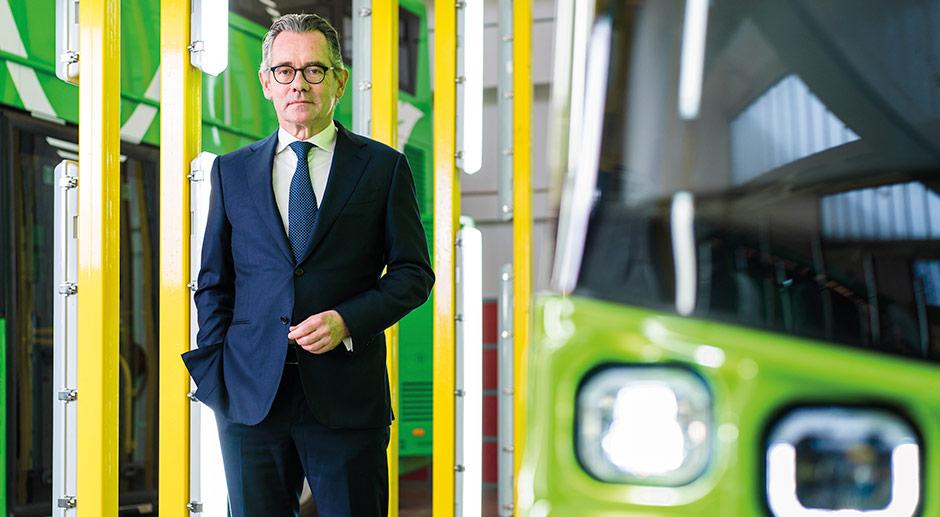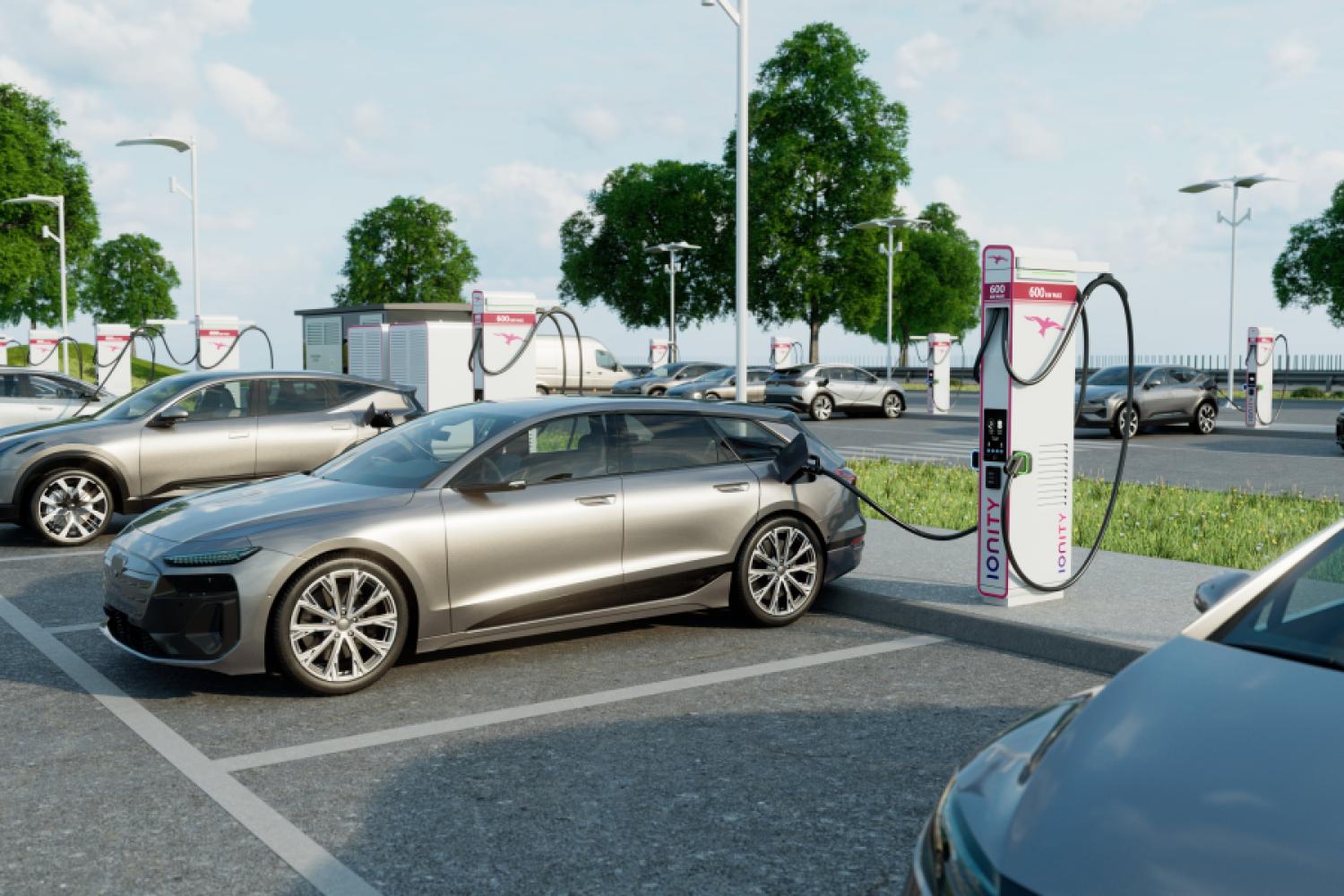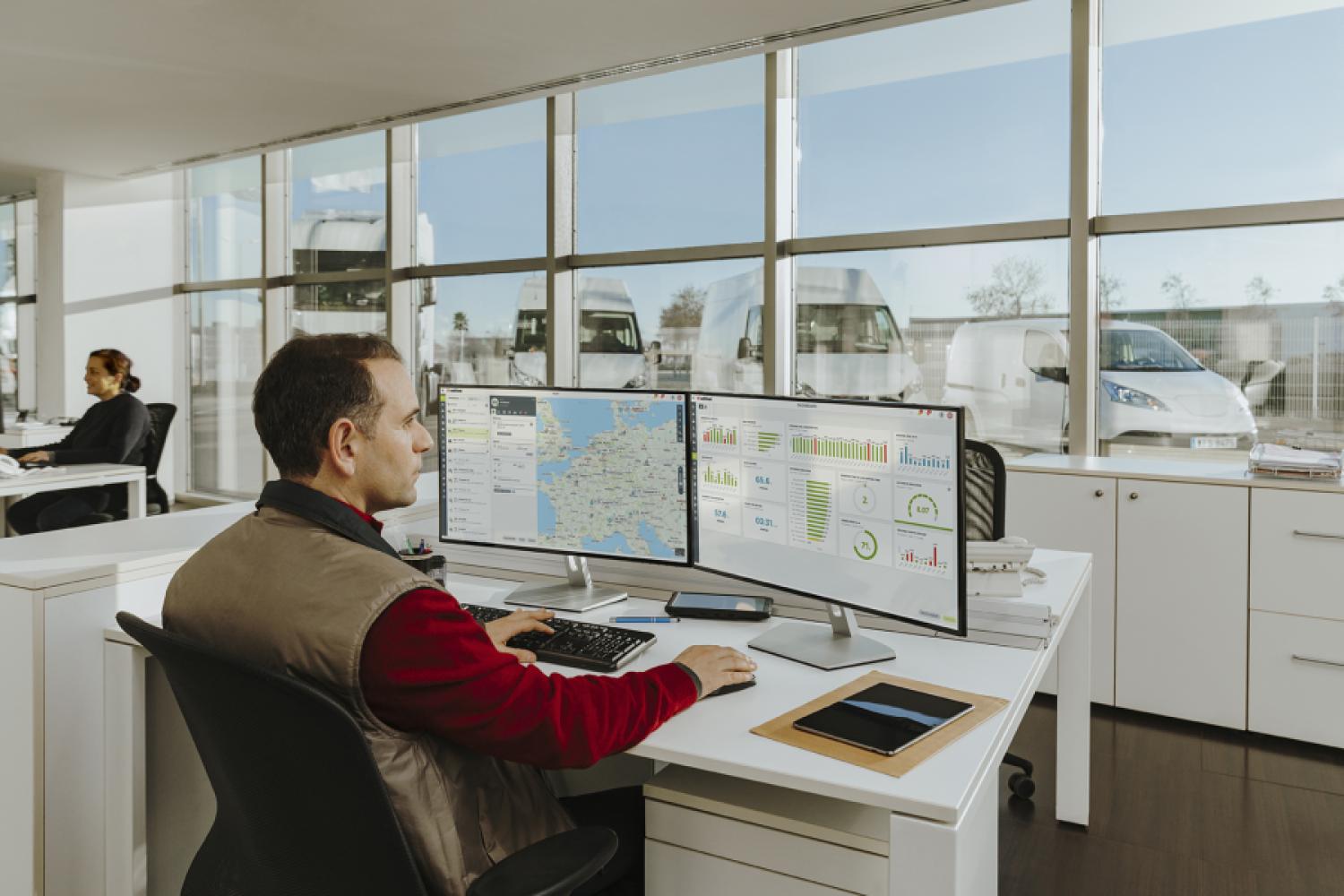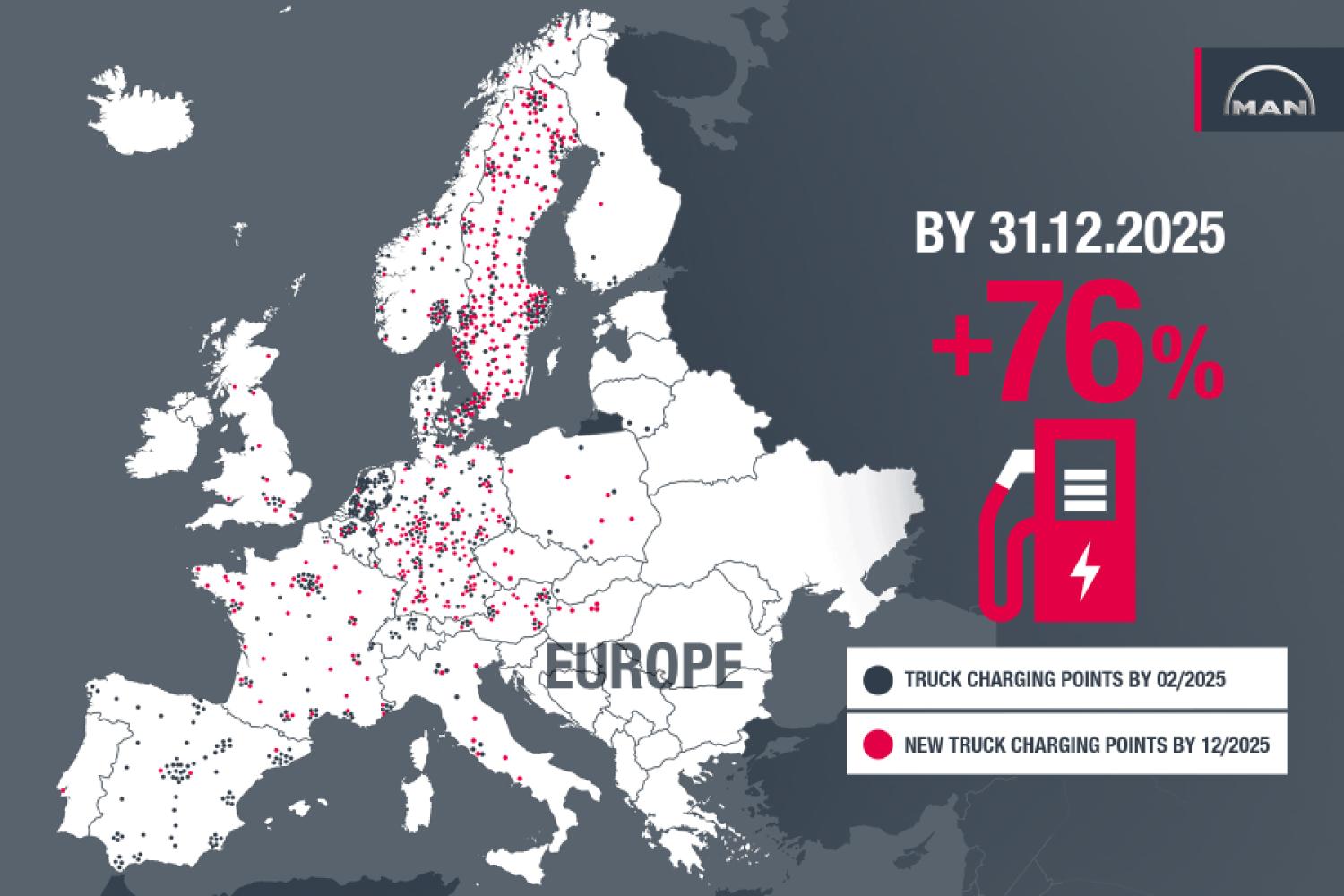The manufacturer of hydrogen and electric buses, Wrightbus, is gaining significant momentum as a "hidden champion" and thus a lesser-known player with greater potential: In Europe, the company based in Ballymena, Northern Ireland, is among the fastest-growing bus manufacturers. In 2019, Wrightbus, founded by William Wright in 1947, had to file for bankruptcy due to the loss of a major customer.
JCB founder's grandson Jo Bamford stepped in and turned the company around. In February 2023, he brought on board the native Luxembourger Jean Marc Gales, who had held key positions in the car industry – he was global sales chief at BMW and Mercedes-Benz, CEO at Peugeot and Citroën in Paris, at Lotus in the UK, and Chairman at Williams, but: Apart from taking a bus to school, he had nothing to do with buses.
Wrightbus is known for its double-deckers - Everyone knows the "Boris Bus"
Fundamentally, he found a well-maintained company: Once only a body manufacturer, Wrightbus has been building the chassis and almost the entire vehicle since 2012. Only the drives and batteries are purchased. The breakthrough was surely the Routemaster successor, colloquially called the "Boris Bus," which Boris Johnson implemented during his tenure as mayor. It was designed as a hybrid, with purely electric and hydrogen fuel cell buses soon following, which also attracted hydrogen enthusiast Bamford.
In Ballymena, Northern Ireland, where fewer than 50 people worked at the time of the bankruptcy, 2,200 people are now employed, and investment is being made in new welding robots and a new paint shop to become more efficient and enhance quality standards. Additionally, a new plant has been established in Malaysia to cover the emerging Asian market, capable of producing up to 600 buses annually – cheaper than in China.
Cost optimized: "Reasonably competitive"
Since Gales took over, he optimized costs, as bus manufacturing is still very much manual work. In terms of costs, Gales now aims to be "reasonably competitive" compared to Asian imports, as he smilingly explains. Suppliers had to make significant concessions, but they, in turn, profit from the massively increased production volumes, and: From Northern Ireland, duty-free exports to Europe are allowed. Another advantage: A partnership with Queens University in Belfast, where Wrightbus sponsors ten doctoral students annually through a sponsorship program. The background: Each doctoral student supervises ten theses, resulting in input from the dissertations and 100 theses per year – with comparatively manageable financial expenditure.
Great effort in service
On the other hand, great effort is put into service: Wrightbus buses are generally expected to operate for 20 years and approximately one million kilometers – for this period, Gales can state an effective usage time of 98.6 percent. Therefore, in the UK alone, around 70 field service staff with fully equipped service vans are on the road, able to travel directly to the buses or customers in case of problems. Such vans are also planned in Germany – including for Rightech. There are also a service center in Bicester, UK, and in Brühl, Germany, with more centers planned in northern and southern Germany.
Expand the plant in Malaysia as a hub for the Asian market. New is also the Repower sector, where diesel buses are converted into electric buses, including from other manufacturers, for which a separate company has been established. In terms of infrastructural decarbonization, Wrightbus wants to be at the forefront. It became clear during the presentation of Rightech: Bamford and Gales are doers who take great pleasure in advancing a project together with outstanding people. How this should look specifically, he told us in an interview.
Wrightbus was only saved from insolvency in 2019 – how did you manage to become Europe's fastest-growing bus manufacturer?
Gales: There were many levers. The transition to focusing heavily on locally emission-free drives was certainly the most important decision. We are opening new markets and planning with 1,500 units for 2026, intending to break the billion revenue mark in 2027 – a profitable billion. Because the market for alternatively driven buses continues to grow. In the UK, we now cover 40% of the market for alternatively powered buses, and this market is also growing in the rest of the EU. That's a strong momentum we need to capitalize on. Nonetheless, if we want to stay in business in the long term, we must continue to grow.
This works very well with buses, but how did the idea of founding Rightec come about?
Gales (smiling): We offer our own telematics and a 24/7 full service. While evaluating the data, the idea came to us that delivery trucks and midibuses have almost the same usage profiles as city and intercity buses: They are on the road all day with manageable distances and can be charged overnight in the depot. And they mostly operate within emission-free zones, so they should preferably be Zero Emission. Furthermore, the truck market with alternative drives in the segment up to 7.5 tons is growing – currently by about two to three percent per year. In "electrically developed states" like Benelux, Germany, the Nordics, and the UK, alternative drives accounted for about eight percent of the segment in 2024, so there is also potential for numbers here. And a side aspect is that we have no history in the truck sector, which makes us free. I'm very optimistic about that!
You are purchasing trucks from JAC. How much Wrightbus is in them and how did you come across the partner?
Gales: We visited many manufacturers in China over a year and a half. The quality was right with JAC, and above all, the chemistry. They understood very exactly what we need. There's more Wrightbus in the Rightec trucks than one might think. We invested 30,000 hours in homologation and detail changes. Fundamentally, we're taking the safe route here.
In what way?
Gales: We considered whether to set up something new ourselves or acquire something. The former would have been too expensive and lengthy. Developing a completely new product and bringing it to market always carries a high financial risk. With JAC, we found an optimal basis, partly with components whose longevity has already been proven in everyday use. This applies to CATL batteries as well as drives, inverters, and converters. We partly use the same manufacturers in our buses and therefore know the reliability, so we know: It will work! But more importantly, we can therefore also give long guarantees on service and maintenance and know that the parts support works.
Service and distribution in this segment are almost more important than the product itself. How is this organized?
Gales: The basis is the Wrightbus service network. Our people also know the truck business.
This also includes the contacts with bodybuilders, who still operate regionally. How is it going in this regard?
Gales: Here in Germany, we have Peter Kuhn, an experienced expert on board. And our headquarters in Brühl, where we will also have our spare parts warehouse, is quite conveniently located.
And what about the charging infrastructure?
Gales: Here too, we have full support from Ryze Power with their CEO Gabor Beyer.
Oh yes, a good man. We spoke briefly with him before – he is indeed a professional and above all an enabler. Well, we have service, bodywork, energy supply – what about the software data, do they need to go to China to JAC?
Gales: No. That is the big difference! We are not a JAC importer just rebranding a truck; instead, we develop our own software and have also changed some parts as part of the homologation. Our head of development Robert Best knows how to build electric drives. And with the University of Belfast, we model routes that can then be optimized together with customers if we know their requirement profiles. Our software and telematics thus optionally help each customer to reduce their costs.
What does that look like in practice? When will the first vehicles arrive in Germany?
Gales: We have about four months lead time with order and shipping. Then we need about a week in Ballymena to make the vehicles customer-ready before sending them to Brühl or to the bodybuilder. We are currently talking to numerous potential customers in Germany, and some have already expressed concrete interest.
Can you also give us a timeline and sales target for the trucks?
Gales (smiles): Of course, I can! We aim to have the first vehicles on the road by June or July 2025 and expect around 250 deliveries in Europe for the year. The order books have been open since January 29!
The interview was conducted by Gregor Soller
About the person: Jean Marc Gales
He was born on August 16, 1962, in Esch-sur-Alzette, Luxembourg. Gales holds a Master's degree in management sciences (Imperial College London) and a diploma as a mechanical engineer (University of Karlsruhe). He began his career in 1990 at BMW, where he held various leadership positions (strategic planning, group coordination, organization). From 1998 to 2003, he worked at Volkswagen, where he was initially Director of Strategic Marketing and later Director of Group Marketing. At GM, he served from 2003 to 2006 as General Director of Light Commercial Vehicles and as General Director of Sales, Marketing, and Customer Service in Central Europe for the Opel and Saab brands. In 2006, he became the Global Sales Manager of Mercedes-Benz, in 2009 he was appointed to the board of PSA Peugeot Citroën. On January 5, 2012, he took over the leadership of the European Association of Automotive Suppliers CLEPA. From 2014 to 2018, Jean-Marc Gales was CEO of Lotus Cars. In 2021, he joined Williams Advanced Engineering as Chairman, and since 2023, he has been CEO at Wrightbus.






